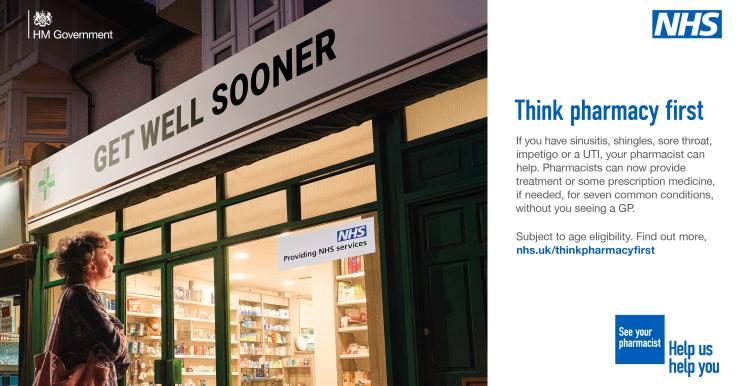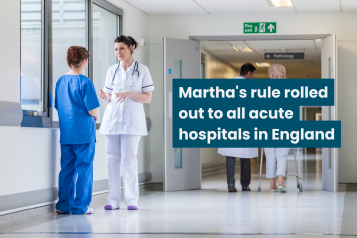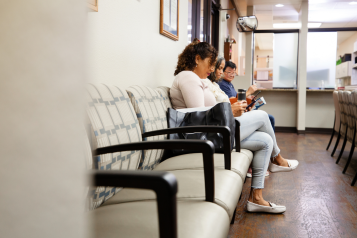What can the Pharmacy First scheme do for me?

Pharmacists can offer advice on a range of illnesses, such as coughs, colds, sore throats, ear infections and aches and pains.
They can also give advice about medicines. This includes how to use your medicine, worries about side effects or any other questions you have.
If they cannot help you themselves, they can refer you to a GP or other health professional.
What is Pharmacy First?
The NHS launched the Pharmacy First Scheme in January 2024. This scheme allows patients across England to get prescription-only treatment for seven common conditions at their local high street pharmacy without needing to see a GP.
This can include prescribing and supplying antibiotics and antivirals where clinically appropriate.
Conditions pharmacies can offer prescription medicine for are:
- impetigo (aged 1 year and over)
- infected insect bites (aged 1 year and over)
- earache (aged 1 to 17 years)
- sore throat (aged 5 years and over)
- sinusitis (aged 12 years and over)
- urinary tract infections (UTIs) (women aged 16 to 64 years)
- shingles (aged 18 years and over)
How does Pharmacy First work?
If you are feeling unwell with any of these conditions, you can go to your local participating pharmacy and ask for a private consultation with the pharmacist.
Your GP might refer you to a pharmacy if they don't have available appointments and believe a pharmacy can help.
Pharmacists may offer a virtual consultation by phone or video call, or in person in a private room in the pharmacy. They will ask questions, may perform an examination and must get your consent to access your medical records.
How can my pharmacist supply a prescription-only medicine if they are not a doctor?
To prescribe a restricted set of prescription-only medicines, pharmacists will follow robust guidelines developed by practising GPs, pharmacists, and antimicrobial resistance specialists, as well as representatives from national organisations such as the National Institute for Health and Care Excellence (NICE) and UK Health Security Agency.
Every pharmacist trains for 5 years in the use of medicines and managing minor illnesses. They are well suited to provide health and wellbeing advice to help you stay well. Pharmacists are also experienced in spotting warning signs or symptoms that may warrant a referral to another healthcare provider.
After a consultation with the pharmacist, the pharmacy will send a notification to the patient’s GP on the same day or on the following working day.
Will I have to pay for my advice or medication?
The appointment and advice from a pharmacist are free to access.
If you are recommended an over-the-counter medication, you will pay the costs of buying this.
If you are supplied with a prescription-only medication, usual prescription charges would apply unless you qualify for free prescriptions.
If you regularly require medication and are not exempt from prescription charges, you may be able to save money through a prescription prepayment certificate (PPC). Find out what help you can get to pay for your prescriptions.
Can I get oral contraception without a prescription?
From December 2023, some pharmacies will be able to start women on oral contraception (also known as ‘the Pill') for the first time, or re-start them after a break, without the person needing to see their GP first. This is an extension of the existing oral contraception service that let women go to pharmacies for repeat prescriptions, that had been initiated first by a GP.
The pharmacist will offer a confidential consultation to discuss your current medication and ensure it is the best option for your needs.
Oral contraception is free on the NHS, and you will not be charged any prescription charges.
To find a local pharmacy offering this service – check out the NHS website.


